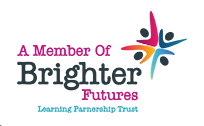Computing
'A high-quality computing education equips pupils to use computational thinking and creativity to understand and change the world' – National Curriculum.
At Dunsville Primary School, we aim to provide a rich, broad and balanced computing curriculum that is completely in line with expectations of the national curriculum. We aim to build all children’s skill set and knowledge surrounding computing. Here at Dunsville Primary School, we understand that technology plays a huge part in day-to-day life and we want all children to be well prepared for the ever-changing technological world that we live in.
All three essential strands of computing are covered:
· Computer science - The scientific and practical study of science computation; what can be computed, how to compute it, and how computation maybe applied to the solution of problems.
· Information technology - Concerned with how computers and technology telecommunications equipment work, and how they may be applied to the storage, retrieval, transmission and manipulation of data.
· Digital literacy - The ability to effectively, responsibly, safely and critically navigate, evaluate and create digital artefacts using a range of digital technologies.
Every child has the opportunity to access and succeed in computing by developing the skills and knowledge through a progressive skills and knowledge-based curriculum taught through the Kapow computing scheme. Children are taught resilience, persistence and confidence and are empowered to succeed through curiosity and perseverance.
Pupils are taught through whole class interactive teaching with pupils given the opportunity to work in groups, pairs and independently. Lessons are sequenced so that concepts are developed in logical steps with particular focus on fundamental concepts. This is to ensure all children master concepts before moving to the next stage so that no pupil is left behind.
All pupils will be given the time and opportunity to fully understand, explore and apply skills in different ways, in different situations and in different subjects. This enables pupils to fully grasp concepts and how they can be used in different contexts within school and so they are responsible, competent, creative and confident to move onto their next steps in education and the technological world.
Online Safety
Here at Dunsville Primary School, we recognise both the benefits and challenges that digital learning brings to children and therefore take seriously our duty to educate pupils in how to use technology safely. Throughout the year, all children are taught to be safe and responsible online through half-termly whole school assemblies, where pupil voice is collated in order to deliver sessions of value and importance to the children and also woven into computing lessons and other subjects across the curriculum to reinforce the online safety message. We will be holding a whole school online safety day as part of the Safer Internet Day on Tuesday 7th February 2023, where children will take part in online safety learning activities relevant to their year group and age. Being safe online is something that we at Dunsville Primary School take very seriously and always look to keep parents up to date with the latest online safety news as part of our half-termly newsletters.
Computing at Dunsville Primary School
Here are a few examples of children's learning during computing this term.
In Lower Key Stage 2, the children have been learning about 'Networks and the Internet'. The children mapped out the school network, plotted the journeys of a file and website and also found out how data is sent in small pieces called 'packets'.





















